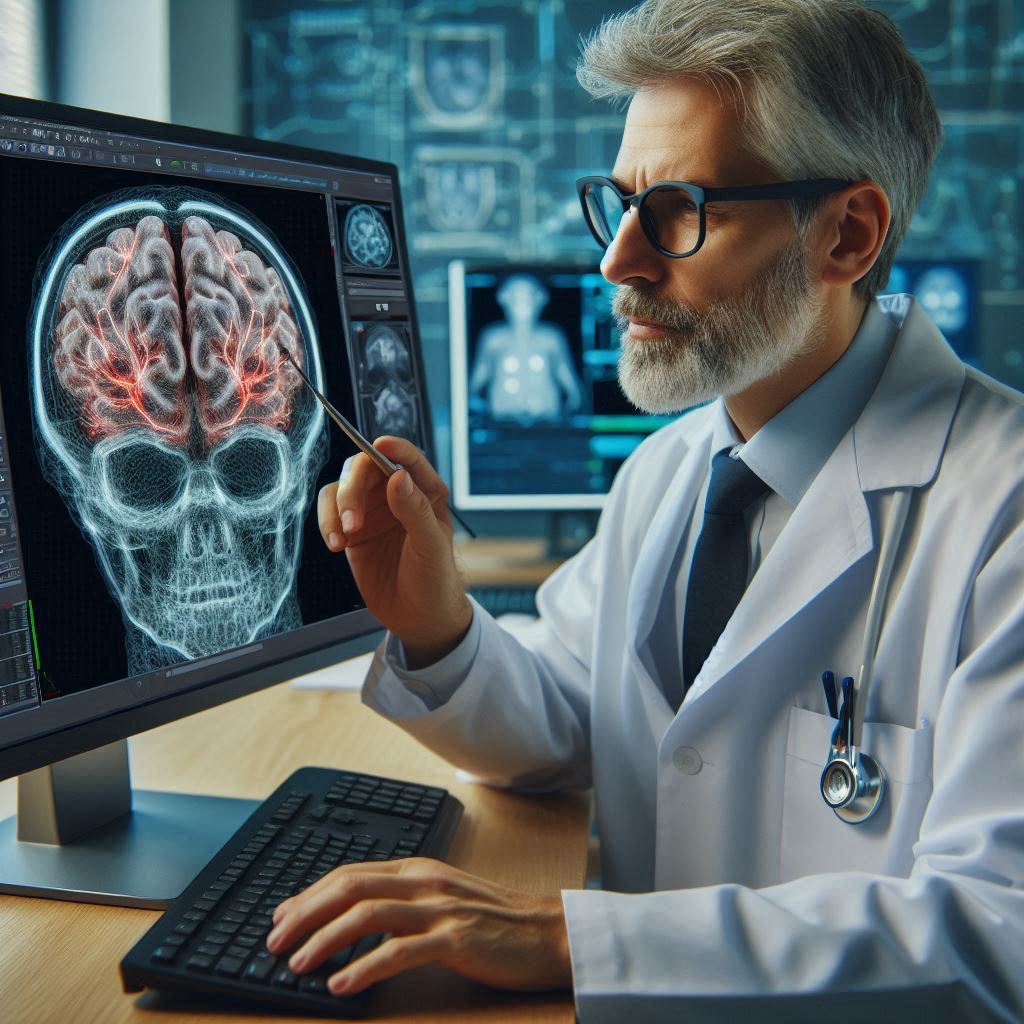Eating disorders are a battle that’s fought on the inside, but the consequences can be seen on the outside. They’re not just a fad or a trend but a serious health condition that affects several people worldwide.
From anorexia nervosa and bulimia nervosa to binge eating disorder, the struggle is real and can be life-altering.
Eating disorders can manifest in various ways, including restrictive eating, binge eating, and purging behaviors. They can lead to physical and emotional health problems, and in severe cases, they can even be fatal. However, recovery is possible with the right treatment, support, and self-care.
If you or someone you know is struggling with an eating disorder, know that there is hope. It takes courage to seek help, but it is a step towards a happier and healthier life.
Remember, you are not defined by your eating disorder, and there is no shame in asking for help.

What Are Eating Disorders?
Eating disorders are mental health conditions involving a persistent disturbance in eating patterns and behaviors. These disorders can have severe physical and psychological consequences and can be life-threatening if left untreated. Eating disorders can affect anyone, regardless of age, gender, or background.
The three main types of eating disorders are anorexia nervosa, bulimia nervosa, and binge eating disorder.
Anorexia nervosa is characterized by an intense fear of gaining weight or becoming fat, resulting in a persistent restriction of food intake and a distorted body image.
Bulimia nervosa involves recurrent episodes of binge eating, followed by purging behaviors such as self-induced vomiting or the use of laxatives.
Binge eating disorder is also characterized by recurrent episodes of binge eating but without compensatory behaviors.
Eating disorders can also involve excessive exercise, food rituals, and distorted thinking about food and body weight.
Innovative Tech Solutions, Tailored for You
Our leading tech firm crafts custom software, web & mobile apps, designed with your unique needs in mind. Elevate your business with cutting-edge solutions no one else can offer.
Start NowOther types of eating disorders are Avoidant/restrictive food intake and Pica. Avoidant/restrictive food intake involves a lack of interest in food or avoidance of certain foods due to sensory issues. On the other hand, Pica is a mental health condition that involves the persistent ingestion of non-food items.
Eating disorders can have serious physical consequences, such as malnutrition, electrolyte imbalances, gastrointestinal problems, and cardiovascular complications. They can also have severe psychological consequences, such as depression, anxiety, and social isolation. If left untreated, eating disorders can be life-threatening.
Read: What is Borderline Personality Disorder (BPD)?
Causes of Eating Disorders
While the exact causes of eating disorders are not fully understood, research has identified several potential risk factors that may contribute to their development.

They are:
Biological Factors such as Genetics, Hormonal Imbalances, and Neurobiological Causes
Studies have shown that genetic and biological factors may play a role in developing eating disorders. Research has identified specific genes associated with a higher risk of developing anorexia nervosa and bulimia nervosa.
Additionally, certain hormonal imbalances, such as changes in serotonin and dopamine levels, may contribute to the development of eating disorders. Neurobiological factors, such as alterations in brain structure and function, may also be involved in the development of eating disorders.
This research which sampled the DNAs of 197 family groupings, found a genetic link to anorexia.
Psychological Factors such as Trauma and Low Self-Esteem
Psychological factors can also play a significant role in the development of eating disorders. For example, individuals with a history of trauma or abuse may be more likely to develop an eating disorder.
Read: What is Post-Traumatic Stress Disorder (PTSD)?
Perfectionism, low self-esteem, and a negative body image can also be contributing factors. Additionally, individuals with certain personality traits, such as impulsivity or rigidity, may be more susceptible to developing an eating disorder.
Seamless API Connectivity for Next-Level Integration
Unlock limitless possibilities by connecting your systems with a custom API built to perform flawlessly. Stand apart with our solutions that others simply can’t offer.
Get StartedEnvironmental Factors such as Culture and Childhood Experiences
Environmental factors can also contribute to the development of eating disorders. Cultural ideals of thinness and societal pressure to conform to certain body standards can be significant risk factors.
Additionally, exposure to messages that promote unhealthy eating habits or weight loss behaviors can also be a factor.
Childhood experiences, such as being teased or bullied about one’s weight or appearance, can contribute to eating disorders. In some cases, stressful life events like divorce or the death of a loved one may trigger the onset of an eating disorder.
In addition to these risk factors, many situations can increase the likelihood of developing an eating disorder.
For example, individuals who engage in restrictive or excessive dieting may be more likely to develop an eating disorder. Similarly, athletes who participate in sports focusing on weight or body shape, such as gymnastics or wrestling, may be more susceptible to developing an eating disorder.

Anorexia Nervosa
Anorexia nervosa is an eating disorder characterized by an intense fear of gaining weight, a distorted body image, and a persistent restriction of food intake.
People with anorexia may have a body weight significantly lower than what is considered healthy for their age, gender, and height. They may also engage in excessive exercise or other behaviors to further restrict their calorie intake.
Anorexia can lead to serious health complications, including malnutrition, anemia, heart problems, and bone loss. In severe cases, it can be fatal.
Anorexia is also often associated with psychological factors such as low self-esteem, perfectionism, and a desire for control. It can also be triggered by societal pressure to conform to specific body standards and traumatic life experiences.
Anorexia Treatment
Treatment for anorexia typically involves a combination of medical care, nutritional counseling, and therapy. This may include cognitive behavioral therapy (CBT) and family-based therapy. Sometimes, hospitalization may be necessary to address medical complications and ensure adequate nutrition.
Recovery from anorexia is possible with appropriate treatment and support. Therefore, it is advisable to seek help as early as possible. Early intervention can improve outcomes and reduce the risk of long-term health complications.
Bulimia Nervosa
Bulimia Nervosa is a serious eating disorder characterized by a cycle of binge eating and purging. It involves consuming an excessive amount of food in a short period of time, often accompanied by a sense of loss of control over one’s eating.
Purging, on the other hand, are the compensatory behaviors that follow binge eating. This may include self-induced vomiting, misuse of laxatives or diuretics, or excessive exercise.
Transform Business with Custom CRM & ERP Solutions
Elevate your operations with a CRM or ERP tailored for you. Let’s build the perfect solution that others can't replicate—crafted to match your business's needs like no other.
Get Started
Individuals suffering from bulimia are often preoccupied with body weight and shape and may have a distorted body image. They may feel intense guilt or shame after binge eating and may try to hide their behaviors from others.
Over time, bulimia can lead to various physical and psychological health problems, including electrolyte imbalances, gastrointestinal issues, dental problems, and mood disturbances.
Symptoms of Bulima Nervosa
Some of the common symptoms of Bulimia Nervosa are:
- Binge Eating: Eating large amounts of food in a short time, often feeling a lack of control during these episodes.
- Purging Behaviors: Engaging in behaviors to compensate for binge eating, such as self-induced vomiting, use of laxatives or diuretics, or excessive exercise.
- Preoccupation with body weight and shape: Constantly worrying about weight gain, having a distorted body image, and experiencing intense shame or guilt after eating.
- Dental problems: Frequent purging can cause tooth decay, enamel erosion, and other dental problems.
- Gastrointestinal Problems: Digestive issues like constipation, bloating, stomach pain, and acid reflux are common due to the stress placed on the digestive system by repeated episodes of bingeing and purging.
- Social Isolation: Feelings of guilt and shame can lead to withdrawal and avoidance of social situations involving food.
- Obsessive Desire for food: Constantly thinking about food, such as planning meals, counting calories, and restricting food intake.
- Mood Changes: Depression, anxiety, irritability, and mood swings can be present.
However, not everyone with bulimia may display all of these symptoms because some symptoms may vary in severity.
If you or someone you know is displaying any of these signs, it is crucial to seek professional help as soon as possible. Early intervention can improve outcomes and reduce the risk of long-term health complications.
Medication, therapy, and support groups can also help as a means of treatment. But seeking professional help is a priority.
Binge Eating Disorder
Binge Eating Disorder (BED) involves recurrent episodes of binge eating, during which a person consumes large amounts of food in a short period of time and feels a sense of loss of control over their eating.
Unlike bulimia, people with BED do not engage in compensatory behaviors such as purging, fasting, or excessive exercise after binge eating episodes.
The exact causes of BED are not fully understood, but it is believed to be influenced by genetic, biological, psychological, and social factors. Some studies have suggested that the disorder may have a genetic component. Others have identified changes in brain chemistry or hormone levels in people with BED.

Symptoms of Binge Eating Disorder (BED)
People with BED often experience a range of physical and emotional symptoms, including:
- Eating rapidly during binge eating episodes.
- Feeling like binge eating is out of control.
- Eating until feeling uncomfortably full.
- Eating alone due to embarrassment.
- Feeling a sense of disgust, depression, or guilt after binge eating.
- Experiencing frequent fluctuations in weight.
Over time, BED can lead to various health problems, including obesity, diabetes, heart disease, and high blood pressure. Additionally, people with BED may experience social isolation and shame related to their eating behaviors.
Tailored Tech Solutions to Drive Your Business Forward
Maximize your business potential with custom tech strategies. We deliver bespoke solutions that others can’t match, designed to solve your specific challenges with precision and impact.
Contact UsBED treatment typically involves a combination of medical care, nutritional counseling, and therapy. This may include cognitive behavioral therapy (CBT).
Ultimately, once you spot any of the symptoms of eating disorders in yourself or any of your loved ones, seek professional help as soon as possible. They might lead to critical health conditions or even death if not treated accordingly.
If you or anyone you know is suffering from eating disorders, please know that help is readily available. Reach out to a qualified health professional or call the eating disorder hotlines for help.
Before you go…
Hey, thank you for reading this blog to the end. I hope it was helpful. Let me tell you a little bit about Nicholas Idoko Technologies. We help businesses and companies build an online presence by developing web, mobile, desktop, and blockchain applications.
We also help aspiring software developers and programmers learn the skills they need to have a successful career. Take your first step to becoming a programming boss by joining our Learn To Code academy today!
Be sure to contact us if you need more information or have any questions! We are readily available











